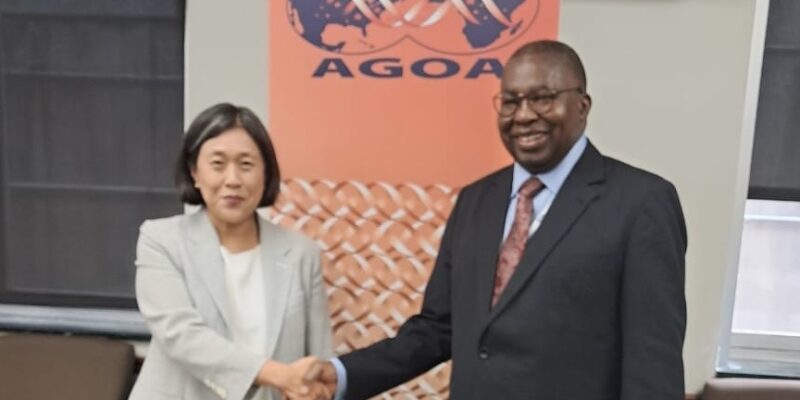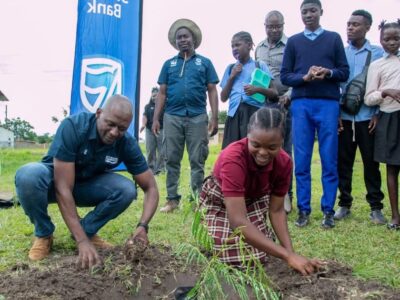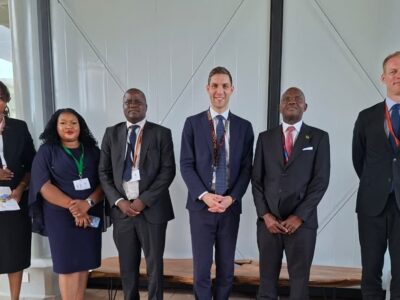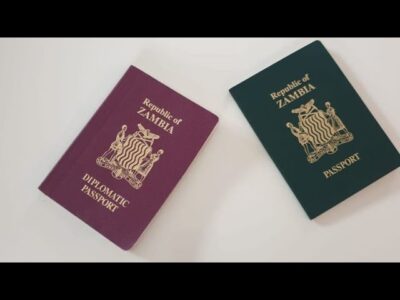Although Africa contributes less than four percent of global carbon emissions, it is more vulnerable to its adverse impacts such as floods and drought.
African Union (AU) Comissioner for Economic Development, Trade, Tourism, Industry and Minerals Albert Muchanga says all these show the urgency for global climate action.
Ambassador Muchanga says the world needs a robust, transparent and resilient climate finance architecture.
“We seek a global climate finance architecture that enables African countries to adapt to climate challenges and transition to low-carbon economies without deepening their debt burdens as well as undermining financing of their poverty reduction programmes and projects,” he says.
Read more: Zambia commits to positive support towards African Union financial institutions
Against this background, Ambassador Muchanga is of the view that as Africa goes to the Fourth International Conference on Financing for Development (FfD) that will take place from June 30 to 3 July 2025 in Spain, there is need to renew calls to developed countries to meet their commitments on climate finance.
At a regional consultation for the fourth International Conference on financing for development in Africa held in Addis Ababa, Ethiopia recently, Ambassador Muchanga said there was need to leverage Africa’s natural resources in the green transition.
“In this connection, work is underway to come up with a strategy on green minerals, whose key focus areas is value addition at source. We hope to have the draft strategy endorsed by the African Ministers responsible for minerals before the end of this year,” he said.
Ambassador Muchanga said this strategic document ties up to finance in the sense that it will promote export development and diversification.
“This is because the accumulation of international reserves is key to creating a reliable platform for financing development. In the same vein, we are happy with the initiative of the African Development Bank to measure Africa’s green wealth and incorporate it in our gross domestic products,” he said.
Ambassador Muchanga said the initiative will, among others, contribute to monetizing Africa’s carbon sinks and also contribute to improving its credit ratings by lowering borrowing costs.
He said related to this is the need to build capacities in negotiation of carbon deals to stop the current practice where Africa is underselling its carbon sinks and consequently sustaining under development.
“I repeat my call to African governments to suspend involvement in the carbon trade market until they have built the requisite capacities,” Ambassador Muchanga said.
He also spoke of the importance of enhancing domestic resource mobilisation as Africa prepares to go for the Fourth United Nations (UN) Conference on the Financing for Development.
“Some of our cooperating partners have publicly stated that the world is now in the post-official development assistance era. In this era, aid as we knew it is diminishing, rapidly. A good indicator of that is that in this era, which is also the era of low growth and high debts in developing countries, there is a trend of net transfer of financial resources from developing to developed countries,” Ambassador Muchanga observed.
He said a key aspect of domestic resource mobilisation is the need for African countries to broaden and deepen their tax bases and a major strategic lever is digitalisation.
“For the public, they must also see and experience value for money. Integrity in managing public finances is equally cardinal in this respect. As part of domestic resource mobilisation, African countries must also eliminate illicit financial flows and the smuggling of commodities like gold,” Ambassador Muchanga said.
He added that as part of domestic resource mobilisation, it is good to see that some African countries are moving away from tax incentives which, historically have been another drain on public finances.
“Related to domestic resource mobilisation is our on-going collaboration with the African Peer Review Mechanism, the African Export-Import Bank and the African Development Bank (ADB) to operationalise a private sector driven African Credit Rating Agency. Operationalisation of the African Credit Rating Agency will greatly contribute to improving the credit ratings of African borrowers and, consequently, reduce borrowing costs,” Ambassador Muchanga said.
Contributed by Benedict Tembo
WARNING! All rights reserved. This material, and other digital content on this website, may not be reproduced, published, broadcast, rewritten or redistributed in whole or in part without prior express permission from ZAMBIA MONITOR.













Comments